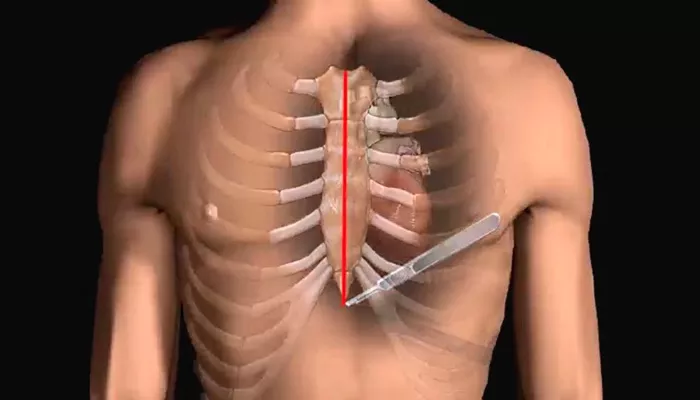Heart bypass surgery, also known as coronary artery bypass grafting (CABG), is a common procedure performed to improve blood flow to the heart. This surgery is primarily aimed at treating coronary artery disease (CAD), which occurs when the arteries that supply blood to the heart become narrowed or blocked. In this article, we will explore the various reasons for heart bypass surgery in detail, using straightforward language to ensure clarity.
What Is Coronary Artery Disease?
Coronary artery disease is often caused by atherosclerosis, a condition where fatty deposits, known as plaques, build up in the coronary arteries. This buildup narrows the arteries and restricts blood flow to the heart muscle. Over time, this can lead to serious complications, including:
Angina: This is chest pain or discomfort that occurs when the heart muscle doesn’t receive enough oxygen-rich blood.
Angina can be triggered by physical activity or stress.
Heart Attack: A complete blockage of a coronary artery can lead to a heart attack. This occurs when the blood supply to part of the heart is cut off, causing damage to the heart muscle.
Heart Failure: Chronic lack of blood flow can weaken the heart muscle over time, leading to heart failure, where the heart cannot pump blood effectively.
SEE ALSO: What Are The Complications of Ischemic Heart Disease?
When Is Bypass Surgery Recommended?
Bypass surgery is typically recommended in the following situations:
1. Severe Blockages
When a coronary artery is severely narrowed (generally 70% or more), bypass surgery may be necessary. Severe blockages significantly limit blood flow and increase the risk of heart attacks. In some cases, multiple arteries may be affected, making surgery a more viable option than other treatments.
2. Failed Other Treatments
If patients have tried other treatments, such as medications and lifestyle changes, without success, bypass surgery may be the next step. This is particularly true for patients experiencing persistent angina despite taking anti-anginal medications or those who have had episodes of unstable angina.
3. Diabetes
Patients with diabetes are at a higher risk of developing coronary artery disease. Bypass surgery can help improve blood flow to the heart in diabetic patients, particularly when multiple arteries are blocked. Studies have shown that bypass surgery can improve outcomes for diabetic patients compared to medical management alone.
4. Left Main Coronary Artery Disease
The left main coronary artery supplies a significant portion of the heart. Blockages in this artery can be particularly dangerous. Bypass surgery is often recommended when there is a blockage of 50% or more in this artery, as it can help prevent heart attacks and improve blood flow to critical areas of the heart.
5. Heart Function Impairment
If diagnostic tests, such as echocardiograms or nuclear stress tests, show that the heart’s pumping ability is impaired due to poor blood flow, bypass surgery may be necessary. Improving blood flow through bypass surgery can enhance overall heart function.
The Bypass Surgery Procedure
During heart bypass surgery, surgeons create a new route for blood to flow around the blocked artery. This is achieved by grafting a healthy blood vessel (often taken from the leg, arm, or chest) to bypass the blockage. Here’s a brief overview of the procedure:
Anesthesia: Patients are given general anesthesia, ensuring they are unconscious and pain-free during the surgery.
Incision: A large incision is made in the chest to access the heart.
Harvesting Grafts: Surgeons remove healthy blood vessels from other parts of the body to use as grafts.
Bypass Creation: The grafts are attached above and below the blocked artery, creating a new pathway for blood flow.
Monitoring and Recovery: After the procedure, patients are monitored in a recovery unit. Most patients stay in the hospital for several days before being discharged.
Risks And Considerations
While heart bypass surgery can be life-saving, it is important to understand the risks involved. These may include:
Infection: Any surgical procedure carries a risk of infection.
Bleeding: There is a risk of bleeding during or after the surgery.
Heart Rhythm Problems: Some patients may experience irregular heartbeats after surgery.
Cognitive Changes: Some patients report temporary memory issues or confusion following the surgery, known as postoperative cognitive dysfunction.
Recovery After Bypass Surgery
Recovery after heart bypass surgery is a gradual process. Patients are typically encouraged to start walking as soon as they are able. Cardiac rehabilitation programs are often recommended to help patients regain strength and improve cardiovascular health. These programs include supervised exercise, nutritional counseling, and education about lifestyle changes to prevent future heart problems.
Conclusion
Heart bypass surgery is a vital option for patients with severe coronary artery disease and associated symptoms. By understanding the reasons for this procedure, patients can make informed decisions about their heart health.
Related topics:
- Which Artery Is The Most Common to Have Blockage?
- What Artificial Sweeteners Are Linked to Heart Disease?
- What Foods Make Your Ldl Cholesterol High?

